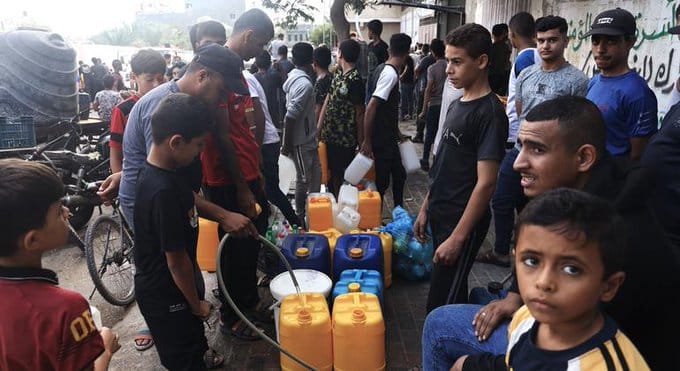The United Nations said Friday that it had been forced to stop deliveries of food and other supplies to Gaza as a communications blackout was hindering aid coordination.
The U.N. further warned that the collapse of internet and phone services due to a lack of fuel could aggravate the possibility of widespread starvation in the territory.
For the first time on Friday, Israel announced that it would allow for “very minimal” daily shipments of fuel into Gaza for use by the U.N. and for communications.
Since the Israel-Hamas war began following the terrorist organization’s massive attack in Israel on October 7, the Israeli government had been unwilling to allow fuel to be delivered into Gaza, reportedly wanting to see each fuel tanker accompanied by a U.N. monitor team to ensure it goes to aid Gazan civilians and not Hamas.
Though Israel now says it will allow fuel shipments in, the amount is reportedly far less than what the U.N. has said is needed to power water systems, hospitals and aid truck deliveries. That’s apart from fuel for communications systems.
The current communications blackout was in its second day Friday, largely cutting off Gazans from one another and the outside world, and crippling coordination of aid.
“An extended blackout means an extended suspension of our humanitarian operations in the Gaza Strip,” Juliette Touma, spokesperson for the UNRWA, the U.N. agency that aids Palestinian refugees, told the Associated Press, noting that her agency had been unable to bring its aid convoy into Gaza on Friday.
PHOTO: U.N. aid delivered to Gaza earlier this month
Read more exclusive news from Political IQ.


